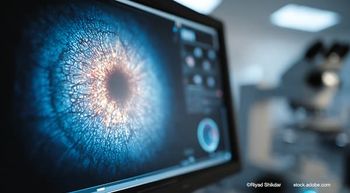
PGA-timolol combo effective for POAG
A combination of prostaglandin analog (PGA) and timolol 0.1 & gel reduces both IOP and fluctuations in primary-angle glaucoma patients, states a recent paper in European Journal of Ophthalmology.
A combination of prostaglandin analog (PGA) and timolol 0.1 & gel reduces both IOP and fluctuations in primary-angle glaucoma patients, states a recent paper in European Journal of Ophthalmology.
Dr Carlo Nucci et al., Ophthalmology Unit, Department of Exp. Medicine and Surgery, University of Rome Tor Vergata, Rome, Italy, administered fixed combinations of PGA-timolol in 64 eyes of 32 patients. This included 17 patients receiving a latanoprost-timolol fixed combination, 9 patients receiving a travoprost-timolol fixed combination and six who were administered bimatoprost-timolol fixed combination. The primary endpoint was the comparison between efficacy of fixed and unfixed combinations in lowering IOP and short-term IOP fluctuations.
All unfixed treatment combinations induced an IOP reduction that was significantly higher than the corresponding fixed treatment combinations. IOP diurnal fluctuations significantly decreased after unfixed combinations were administered, as well as increasing the percentage of patients with daily IOP fluctuation of 2 mm or less.
PGA and timolol was the most effective POAG treatment when administered as an unfixed combination. Once saily timolol 0.1% gel is a valuable treatment option as it reduces both IOP and daily fluctuations.
To read the journal abstract please click
Newsletter
Get the essential updates shaping the future of pharma manufacturing and compliance—subscribe today to Pharmaceutical Technology and never miss a breakthrough.




























